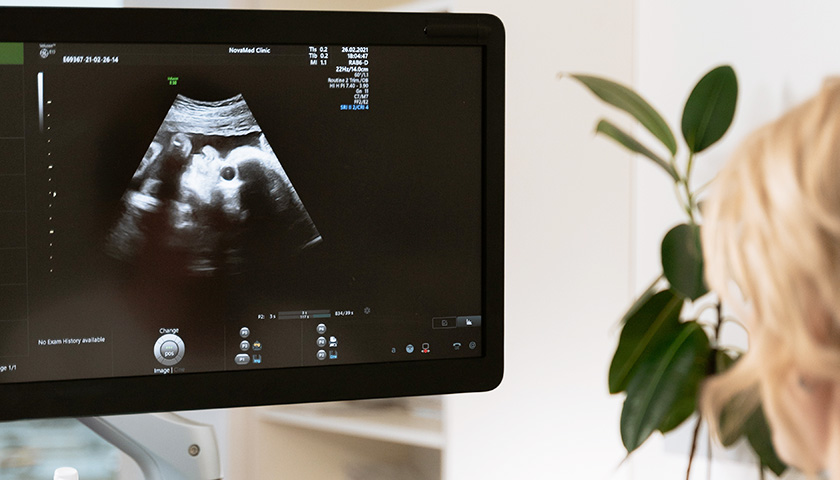An Ohio legislative committee passed a rule on Monday regarding methods to identify a fetal heartbeat despite Democratic objections and a court case holding back the abortion ban.
The Joint Committee on Agency Rule Review (JCARR) passed an administration rule from the Ohio Department of Health (ODH) known as “appropriate methods for determining presence of fetal heartbeat,” despite the facts that the rule matched language in a previously passed abortion law and that the law is not currently enforceable.
ODH Assistant Direction Lance Himes said that the definition of cardiac activity came verbatim from Senate Bill 23.
In the rule, the definition of a fetal heartbeat is “cardiac activity or the steady and repetitive rhythmic contraction of the fetal heart with the gestational sac.”
Democrats on the committee objected to the rule, saying it is in violation of existing state rules as well as case law about how a rule passes.
According to the rule, “The method of determining the presence of a fetal heartbeat is to be consistent with the person’s good faith understanding of standard medical practice.”
This encompasses that “the physician is obligated to determine the presence of a fetal heartbeat by using properly maintained and functioning ultrasound equipment and to give the pregnant woman the option to view or hear the fetal heartbeat. ”
The rule does not define when a “medical emergency exception” applies, however. According to Himes, the ODH did not receive orders to further define a medical emergency.
“I would defer to the physicians who are interpreting this law and rule to determine, in their judgment, which is standard medical practices as defined in the statute and rule, for their determination as to whether it would be a medical emergency,” Himes told JCARR.
JCARR’s approval of the rule this week makes the emergency rule official. The emergency rule was put in place when Senate Bill 23 was implemented after the overturn of Roe v. Wade earlier this year.
State Representative Kristin Boggs (D-Columbus) took issue that the ODH passed the rule without public input and stacked this nonemergency rule on top of the prior emergency rule in violation of JCARR standards and the Ohio Revised Code.
Himes relayed that the regular rule filing does offer forums for individuals to make a public comment, but the Ohio Revised Code does not require a public hearing.
Boggs also argued that SB 23 is currently unenforceable. A Hamilton County judge blocked the law as abortion clinics attempt to get the law thrown out in its entirety.
“So right now, as I see it, there are two reasons that have merit that would suggest that even passing this rule today would invalidate it in the future,” Boggs told JCARR.
State Senator Andrew Brenner (R-Delaware), rebutted against Boggs comment stating that the rule is currently following JCARR process.
“This actually is going through the JCARR process, because that’s what we’re doing right now. So I don’t know how that would be a violation of doing something right now that we’re doing,” Brenner said to JCARR.
State Representative Michael Skindell (D-Lakewood) questioned the rule conflicting with a Medicaid rule which allows for reimbursement of services if abortion is the result of rape or incest along with a rule from the Department of Veterans Services regarding abortion services when a pregnant woman’s life is in danger or in the case of rape or incest.
Skindell argued that the ODH rule violates the Medicaid and Veteran Services Rules upon heartbeat detection.
Himes again reiterated that the ODH administrative rule only sets for methods for determining a heartbeat, not to speak on the legality of abortion related to rape or incest.
Skindell requested a motion to invalidate the rule. The motion failed on a 5-4 vote.
– – –
Hannah Poling is a lead reporter at The Ohio Star and The Star News Network. Follow Hannah on Twitter @HannahPoling1. Email tips to [email protected].
Photo “Ultrasound” by MART PRODUCTION.





